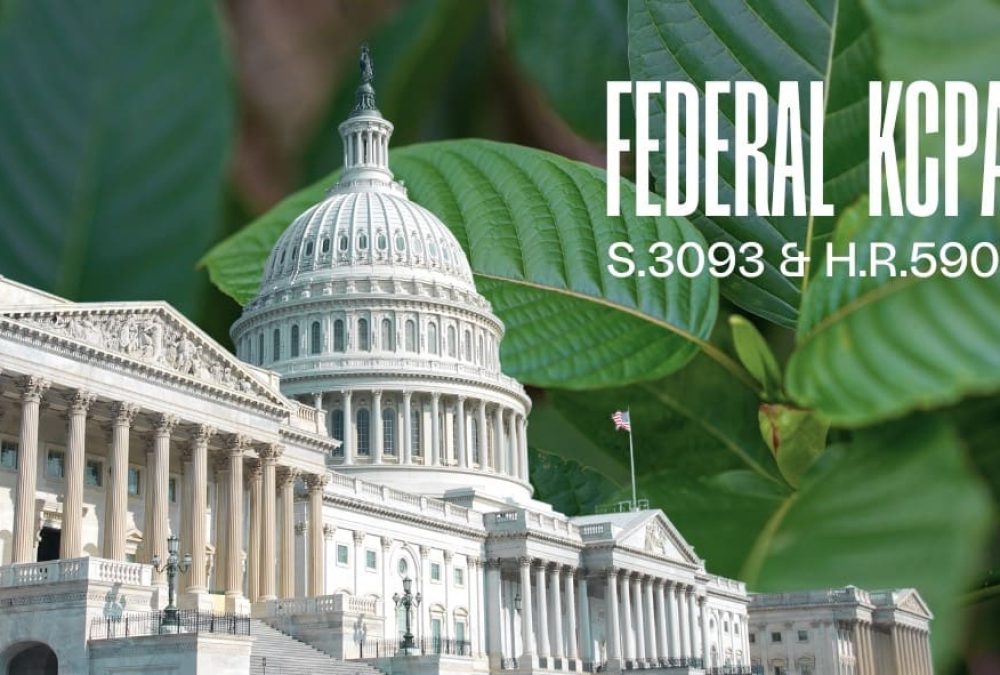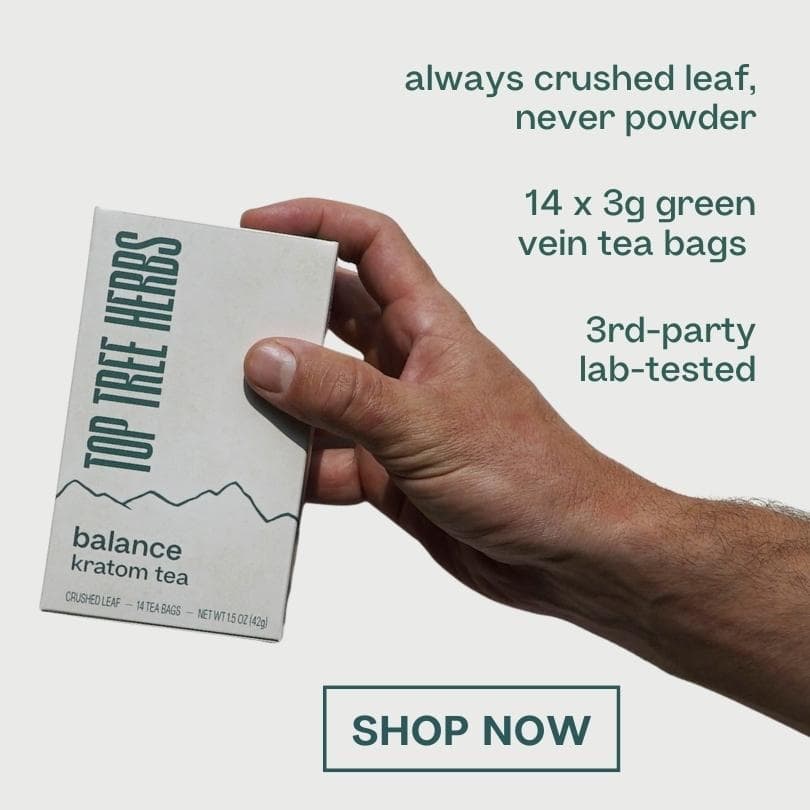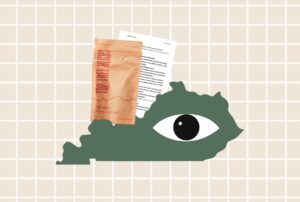The Federal Kratom Consumer Protection Act (KCPA) was filed in both the Senate and the House in early October 2023. Together, the Senate Bill (S.3039) and the House Bill (H.R.5905) could usher in an entirely new paradigm for the national and global kratom community.
But how does the Federal KCPA actually protect consumers?
Relative to many state KCPA bills, the federal kratom bill doesn’t protect consumers through obvious or direct regulatory measures. Instead, it encourages research and limits unfair FDA intervention.
Why is Kratom Regulation Even Necessary?
There are a lot of kratom advocates who believe that kratom shouldn’t be regulated. This often stems from an anti-prohibitionist perspective, a belief that people should be able to make their own choices without any government interference.
Yet, does this belief benefit kratom consumers in the long term? Is it enough to just prevent state and federal kratom bans, or is regulation also necessary?
In our opinion, the answer to the first question is no, and the answer to the latter question is a firm yes.
There are overwhelming number of reasons to support kratom the Kratom Consumer Protection Act and other similar bills at varying levels of government. To understand them, let’s break down the details of the 2023 Federal Kratom Consumer Protection Act. We’ll discuss the challenges it faces in becoming law, propose actions to support the bill, and imagine a world in which the KCPA is passed.
How Kratom’s Controversial History Enhances the Need for Federal Kratom Regulation
Kratom trees have historically been surrounded by controversy. For 80 years, kratom has been used as a scapegoat for issues in which it bears no responsibility.
For example, when Thailand entered into WWII in 1943, the Thai government witnessed their revenue generated by taxing the sale of opium disintegrate. After a quick investigation, the government found that many former opium customers had simply switched to chewing kratom leaves or drinking kratom tea when legal opium became too costly.
They responded by promptly prohibiting the consumption and possession of kratom. It wasn’t until 2022 that kratom was made legal again in its cultural and ecological homeland.
2016 Federal Kratom Ban Attempt
In 2016, the United States Drug Enforcement Agency (DEA), along with the Food and Drug Administration (FDA), attempted to make kratom a Schedule I controlled substance in the United States. This is the strictest level of classification. Plants or compounds in this category cannot be sold or possessed for recreational nor medical uses.
Such kratom bans debilitate research that could improve kratom quality and consumer safety. Once a substance is listed in Schedule I, all research on that substance is prohibited unless researchers apply for a very difficult-to-obtain license. This quickly stifles any research into potential benefits derived from the substance, which can make it more difficult to then get the substance removed from the category if benefits do exist.
In response to the DEA’s announcement of its intent to schedule kratom, there was an outpouring of Congressional, lobbyist, scientific, and grassroots support. The Department of Health and Human Services (HHS) and DEA eventually agreed that kratom did not qualify for scheduling.
Unprecedentedly, the DEA withdrew its intent to schedule kratom.
2021 International Kratom Ban Attempt
However, while kratom advocates won the 2016 battle, they hadn’t yet won the kratom legality war. In 2021, the FDA (along with the rest of the US prohibitionist machinery) attempted to enact an international kratom ban.
They submitted an argument for criminalizing kratom to the Word Health Organization (WHO). The WHO is the arbiter of which substances are added to the list of internationally scheduled substances: the United Nations Convention on Psychotropic Substances.
Kratom remains legal at the federal level. This means that consumers in most U.S. states can get kratom from legal sources instead of black markets, and they can freely consume kratom without fear of criminal punishment. However, is legality and lack of criminality enough to protect consumers’ wellbeing and safety?
All UN member states (including the U.S.) are treaty-bound to follow UN doctrine. As such, if the UN made kratom illegal, the U.S. would have to follow. The UN decision would have overruled the federal decision to keep kratom legal.
Thankfully, after reviewing the scientific data concerning kratom, the UN declared that kratom exhibited the lowest possible concern, and should not be made illegal.
Related: How Old Do You Have to Be to Buy Kratom in Each US State? 50 State Guide
So kratom remains legal at the global and federal level. This means that consumers in most U.S. states can get kratom from legal sources instead of black markets, and they can freely consume kratom without fear of criminal punishment. However, is legality and lack of criminality enough to protect consumers’ wellbeing and safety?
Current Federal Kratom Policy (Updated October 2023)
Despite the fact that kratom is legal in most states, there are still serious issues that the kratom community contends with. On one hand, there are irrational barriers to accessing kratom, and on the other hand, the kratom that consumers have access to is not often high-quality. The federal government plays a large role in perpetuating each of these issues.
Following the rejection of the federal prohibition of kratom, the FDA solicited individual states and municipalities to make kratom illegal in their territory. Rhode Island was the last of six states to fall for their biased arguments against kratom in 2017.
Thankfully, the tides are turning. Vermont has already repealed their ban, and Rhode Island plans to do the same in 2024.
FDA Kratom Import Alert
In addition to moving states to ban kratom after a failed federal attempt to do so, the FDA has enacted other measures that hamper the kratom market functionality and safety.
In fact, the FDA enacted an import alert against kratom in 2014. Three years later, in 2017, they found one shipment of kratom which allegedly was dangerously contaminated with Salmonella. The FDA then issued a first-of-its-kind mandatory recall, and now take advantage of the import alert to perform seizures of kratom products.
To this day, the FDA considers kratom to be an “adulterant.” This means that all kratom imports into the USA—regardless of how high-quality they are—are de facto illegal.
Regardless, as is the case with many substances that have been prohibited, these efforts haven’t actually prevented kratom from being imported into the US. To get around the importation obstacles, kratom importers will declare that their shipments contain something other than kratom, such as fertilizer. This creates a more dangerous environment for consumers, because it reduces transparency and quality in the production process.
For the most part, since the international ban attempt, the war over kratom’s legality has been fought in small, localized skirmishes. These are typically at state and municipal levels, but are often fueled by lack of federal action—or intentional federal misconstruing of what kratom is.
The battles have largely been won by anti-prohibitionists who seek to regulate kratom like any food or supplement. This would ensure that kratom products are not contaminated, and that bad actors can be punished for producing low-quality products or misrepresenting their benefits to consumers.
This has resulted in a constellation of kratom laws for the sale and consumption of the product. Most go by the name “Kratom Consumer Protection Act.”
What is the Federal Kratom Consumer Protection Act?
In 2022, Senator Mike Lee (R-UT) introduced the Federal Clarity for Kratom Consumers Act to Congress. Unfortunately, no action was taken on this bill, as it was introduced in the final minutes of the 2021-2022 Congress and promptly expired.
On October 4th, 2023, Senator Lee once again introduced a kratom bill. It was identical to the 2022 bill in everything but name. This time, it’s been given the more well-recognized name: the Federal Kratom Consumer Protection Act.
Grassroots Efforts: State KCPAs Set the Stage for Federal Kratom Legislation

Before we dive into the Federal KCPA, it is important to note that there have been nine states that have passed their own (considerably different) state kratom bills. Many more states, from Louisiana to New York, have introduced KCPA bills though they’ve failed to pass them into law.
Related: History of Kratom Legality in New York
In total, there are dozens of different bills all clumped together as “KCPA”s. While some KCPAs only create age restrictions for purchasing kratom (Florida, we’re looking at you here) most create more comprehensive regulations. They typically establish common-sense quality standards and labeling requirements that all kratom vendors must follow. These bills effectively cement kratom’s legal status at the state level.
How the Federal Kratom Consumer Protection Act Would Work
The Federal Kratom Consumer Protection Act actually differs greatly in its content from all state KCPA bills.
Instead of creating quality standards for manufacturers or age restrictions for consumers, the Federal KCPA focuses on kratom research and the prevention of undue government interference in the kratom market.
Two bills have been introduced: Senate Bill 3903, the Federal Kratom Consumer Protection Act, and House Bill 5905, “To protect access to kratom.”
The House kratom bill was introduced by Rep. Mark Pocan [D-WI] and Rep. Jack Bergman [R-MI], a bipartisan collaboration. The Senate bill was introduced by Sen. Mike Lee [R-UT]. Sen. Cory Booker (D-NJ) has promised to sign onto it as well, giving both versions bipartisan support.
Vastly Different Kratom Bills with Hopefully Similar Results
While the text of the House bill is not yet been made available to the public, the Senate kratom bill text has been published. Unlike many state KCPA bills, the Federal KCPA (S.3093) does not create quality standards for manufacturers or age restrictions for consumers.
While the bill takes a very different approach from the various state laws, it still has the same ultimate goal of protecting consumer safety.
Instead, the federal bill focuses on kratom research and the prevention of undue government interference in the kratom market. Here are the main points covered in the bill:
- Increased research accessibility
- Establishment of a kratom research task force in Congress
- Prevention of unnecessary restrictions to ensure safety and availability of products
- Redaction of the existing import alert and creation of guidelines for future import alerts
While the bill takes a very different approach from the various state laws, it still has the same ultimate goal of protecting consumer safety. Let’s take a closer look at the bill’s sections and how they would alter the federal approach to kratom regulation:
1. Openness in Research
The Congress Secretary would be required to conduct at least one open forum within 90 days after the bill becomes law to discuss scientific data about the safety and usage of products containing kratom. Discussions would cover factors like consumption rates in the U.S., dependence levels, deaths involving kratom, potential public health implications if kratom became unavailable, and the possible health benefits of kratom. A public docket would be available for comments at least 30 days prior to the hearing date.
Transcripts of all hearings would be made public on the FDA website, subject to certain exemptions.
This would greatly change the FDA’s online status quo. If you were to look up “kratom” on the FDA’s website, you’d finally see scientific facts about the plant and its relative safety profile, contrary to what is currently displayed.
2. Kratom Research Task Force
A task force would be established within 30 days of the bill’s enactment to coordinate federal kratom-related research. The task force would provide an initial report detailing federally funded kratom research, both past and present.
Subsequent quarterly reports would detail their progress and findings.
The FDA has previously requested that organizations conduct research on kratom, but stipulated that they, the FDA, would determine if the research organizations could release the data that was found. The implication is that if the results did not serve the their interests, they could suppress the findings.
Many research institutions, such as John Hopkins, have turned down the FDA’s grant for kratom research due to the conflict of interest. As a result, we don’t know if this research was ever done, or if it was conducted but then censored by the FDA. If the Federal KCPA were passed, any research made possible with federal funding would be made public regardless of whether or not the results were previously suppressed by the FDA.
Public meetings would be held to raise awareness about kratom research, and reports would be published on the FDA website. The task force would terminate two years after the submission of the initial report.
3. Protection of Kratom Against Unreasonable Restrictions
The Federal Kratom Consumer Protection Act would prohibit the imposition of requirements and regulations for kratom that are more restrictive than those for other foods, dietary supplements, and dietary ingredients.
Kratom would not be treated as an adulterated dietary supplement because it contains a new dietary ingredient. It would be exempted from New Dietary Ingredient Notification requirements.
4. Protection from Future Administrative Action
The Federal KCPA would require rule-making for regulating kratom to adhere to formal rule-making requirements. The Congress would be required to conduct in-person hearings for any rule-making. Transcripts of these hearings would be published on the FDA website.
5. Import Alert Requirements
Import alerts for kratom-derived products could only be issued if there is evidence that a kratom-derived product has been adulterated, or if a product was found to be adulterated in the past.
6. Nonpreemption
This bill would not override any state law. States would be able to maintain or enact their own regulations or kratom bans.
Overall Impact
All in all, the federal bill would likely safeguard the industry from large-scale prohibitionist attacks in the future. It doesn’t set specific quality standards or give a regulatory agency the responsibility of enforcing such standards in the way that some state KCPAs do. However, it sets the stage for such measures to be undertaken in the future.
Challenges to the Federal KCPA
While there are several serious challenges to the success of the Federal KCPA, the science behind the safety of kratom is not one of them.
In fact, the World Health Organization declared that the science behind the safety of kratom firmly established it as the “lowest possible concern” in 2021. Additionally, there are now hundreds of research publications on kratom, furthering our understanding of the plant.
The real challenges to the passing of this legislation are sociopolitical in nature.
For starters, the US government has recently been plagued with inaction as a result of the vacancy of the House Speaker position, preventing any movement in Congress.
Furthermore, there has been a recent proliferation of trial lawyers who have been jumping on any “kratom-related death” that they can find. Following a no-show on the part of the defendant, these predatory lawyers recently won over $11 million in the infamous Space Dust kratom lawsuit.
These law firms stand to benefit immensely from kratom remaining in regulatory limbo. Such conditions provide them with copious opportunities to litigate. These trial lawyers have even domineered state hearings on kratom legislation.
Related: Georgia Kratom Ban Bill Tabled for Further Deliberation
Next, advocates are expecting for there to be pushback from the FDA. Either due to conflicting interests or simple misunderstandings, the FDA has been motivated to restrict and prohibit kratom since 2014.
The Federal KCPA would provide guidelines for what the FDA is able to say about kratom and how they may restrict access to kratom. Importantly, the bill would force the FDA to publish facts about kratom that are presented during public hearings.
How to Support the Federal Kratom Consumer Protection Act
There are a number of ways to support the passing of the Federal Kratom Consumer Protection Act. These include direct measures, like contacting your state senators and representatives, as well as more indirect—but equally important—measures, like supporting ethical kratom brands.
Contact Your Elected Officials
First and foremost, reach out to your elected federal officials!
The best thing you can do to help the Federal Kratom Consumer Protection Act get passed is to contact your local representatives to Congress. If you are able to, try to schedule an in-person meeting with your Congressperson.
Don’t feel like traveling or speaking face to face? The next best thing you can do is call your representative’s office.
Once you call, there will be a few possibilities. First, you may speak to your representative directly. Second, you may speak to a secretary. You can tell this person your story and ask what position your representative takes on this matter. Third, you may reach their voicemail. Simply leave a message with your story, where you are from, and ask that they email you with their stance on this policy.
Finally, if calling or visiting in person are not your cup of kratom tea, you can send an email.
Anytime you reach out to your representative, it’s recommended that you speak only of your own experiences with kratom, and that you do not make any generalized medical claim about the plant.
The American Kratom Association has built a powerful tool to help connect you with your Congress people. You can find it here: https://www.protectkratom.org/kcpa
Vote with Your Dollar
Aside from contacting your elected officials, voting with your dollar is another great way to help. How does supporting kratom companies with ethical practices make a difference?
Kratom is frequently denigrated and sensationalized in media stories. People outside of the kratom community may not have a favorable perception of the tree leaf. So it’s important to create a warm environment for newcomers in which kratom can be better understood.
Kratom products with paltry hand-written labels, those rife with heavy metals, or ones found in the hands of underage children… Those products are not going to make a good impression.
Related: Which kratom brands to avoid: red flags when choosing a vendor.
A good kratom vendor uses accurate labels, lab-tests their products, doesn’t sell to minors, doesn’t make unverified medical claims about kratom products, and is honest about their kratom “strains” and proper uses.
These vendors prioritize peoples’ wellbeing over profits. In turn, they create a kratom community environment that is much more welcoming for newcomers.
While voting with your dollar has a less direct impact, it’s an important way to support kratom’s broad cultural acceptance.
Envisioning a World With a Federal Kratom Consumer Protection Act
If advocates work together and succeed in getting the Federal Kratom Consumer Protection Act passed, we can expect to see a world without fear of persecution for enjoying a tea made from a tree leaf. There will not be anxiety related to the uncertainty of whether or not this plant will be available in the long term.
Aisle 10, Next to the Tea and Coffee
If the Federal Kratom Consumer Act passes, we might see kratom in grocery stores and cafes, just like other teas or coffee.
You could put it in your shopping cart along with any other food product. You wouldn’t have to be afraid of consuming contaminants or dangerous pathogens—in this world, all kratom has been lab-tested and produced in food-safe conditions.
Furthermore, the free marketplace would ensure that there is healthy competition between companies, so consumers would have a range of choices to satisfy their desires.
Vanquishing Hegemonic Pressure
The US has outsized control on international drug scheduling decisions. With the passing of the Federal Kratom Consumer Protection Act, there would be no U.S.-incited international pressure for kratom bans.
Proliferation of Science and Research
Finally, Top Tree Herbs, along with many kratom organizations, vendors, and advocates bemoan the lack of scientific research into kratom. Since 2016, scientists have expressed hesitancy to work with kratom; if the plant was made federally illegal, it would halt all of their work.
If the Act were passed, scientists would have certainty that their projects would not be cut off by federal policy changes. Future research into Mitragyna speciosa could lead to the discovery of previously unknown benefits. This could spur innumerable research projects in biology, pharmacology, chemistry, botany, and more.
Stay Tuned for Updates
In light of the transformative potential embedded in the Federal Kratom Consumer Protection Act, the Top Tree team is monitoring the evolution of S.3039 and H.R.5905 through this legislative season with meticulous vigilance.
Our commitment to staying abreast of these pivotal developments reflects our unwavering dedication to ensuring a brighter, safer, and more regulated future for kratom enthusiasts worldwide.
Rest assured, we’ve got our eyes peeled and our ears to the ground, steadfast in our resolve to champion the cause of responsible kratom regulation and consumer protection.







